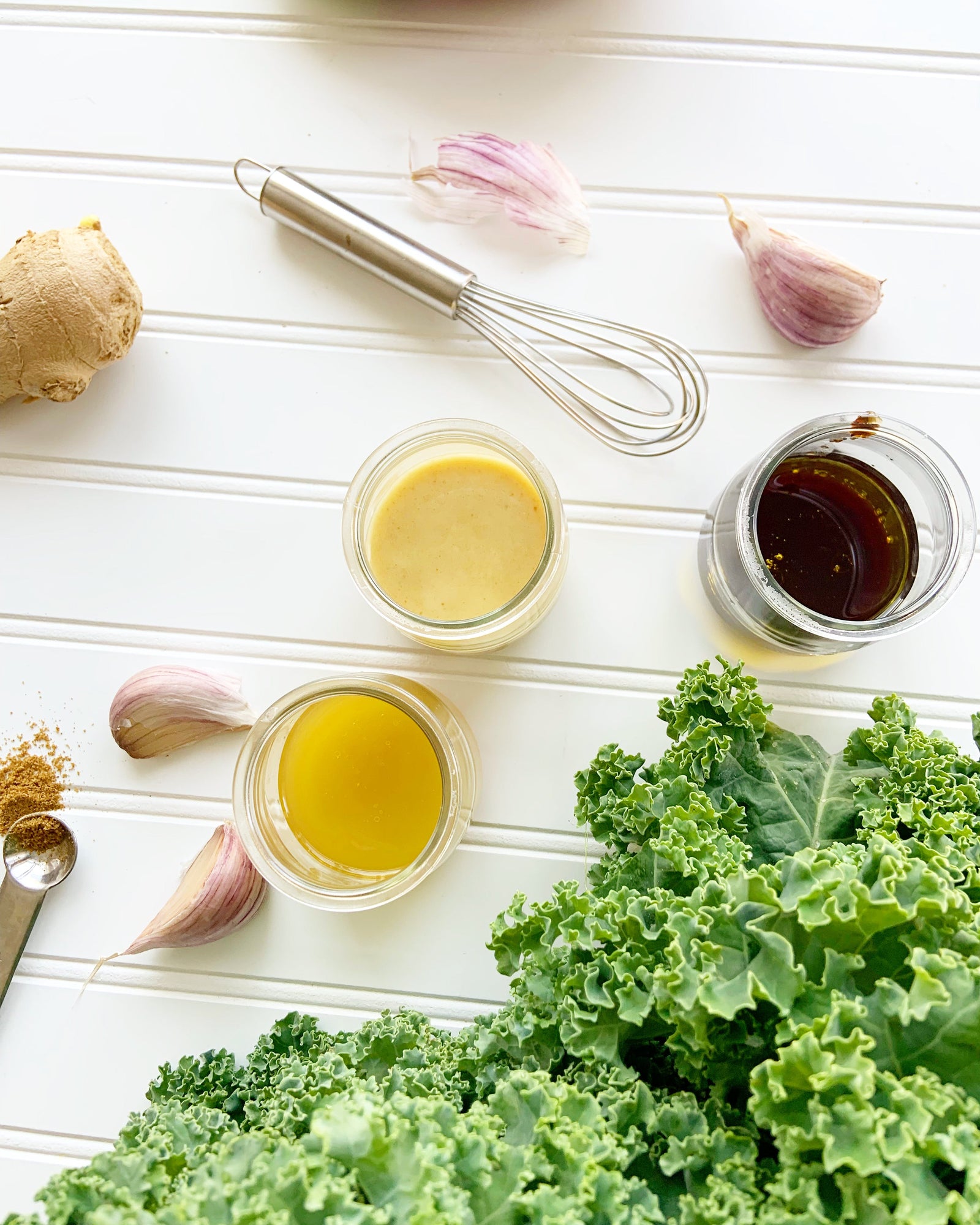What You Need to Know about Virus Prevention
You can stop a virus from making you sick - here's how to boost your immune system naturally.
If you have been feeling tired, stressed or have eaten out, you need to know about the ways you can boost your immune system naturally. Boosting your immune system just might be enough to offer you the virus prevention you need.
What is the Immune System?
Your body is equipped with a variety of mechanisms to defend itself, including some in the upper respiratory tract which does a good job of filtering out the over 100,000 microbial cells per cubic meter of air inhaled per day. You’re interacting with viruses all the time, such as the common cold, influenza and more. Sometimes they cause you to have a sore throat, runny nose or cough. Other times, you barely notice that you’ve came in contact with a virus, because your immune system fought off the virus effectively. Hence, the idea of being able to boost your immune system has become a popular notion. The immune system is part of your body, and like the rest of your body, can be at it’s best when you take care of yourself: get enough sleep, eat more plants, reduce stress, wash your hands, and stay hydrated.
The Best Way to Avoid Getting Sick
Many people are worried about viral prevention, particularly when new viruses get a lot of media attention, like SARs, MERs or the COVID-19. It’s important to seek reliable information, such as that offered by the World Health Organization, or your local Public Health agency. Particularly, for new viruses, understanding how they transmit and effect the body can help you avoid it, and know what to do when you have it. Washing your hands and avoiding touching your face is the BEST way to avoid viruses!
If you’ve washed your hands. Now, what? You want to know if there is more you can do! Here’s what science shows are ways to boost your immune system naturally.
5 Ways to Boost Your Immune System Naturally
- Get more sleep: sleep deprivation lowers viral prevention
- Eat plants: nutrients in whole foods are essential to the body.
- Smile: positive mental health can boost immune factors.
- Improve your microbiome: gut flora benefits immune function.
- Wash your hands, and don’t touch your face
How to Boost Your Immune System Naturally: Viral Prevention
It is possible to boost your immune system. This can help the immune system do a better job of preventing virus infections. Boost your immune system with these 5 easy healthy lifestyle tips:
1. Get more sleep: sleep deprivation lowers viral prevention
Sleep deprivation is an epidemic in today’s 24 hour society. That’s concerning as sleep is vital to the integrity of the immune system. When you get enough sleep it boosts your immune system’s ability to defend against viruses. In a sleep study gave a group of tired American adults a viral challenge, the researchers found they were more susceptible to upper respiratory tract infections (e.g. the common cold, influenza). Researchers have found that not getting enough sleep increases your risk of infection, and also makes your infection outcome worse. In other words, you may get more sick if you fail to get the recommended 7 hours of sleep per night by the Center for Disease Control. Do you get enough sleep? Insufficient sleep is a widespread and prominent problem in the modern 24-hour lifestyle.
The best way to get more sleep is go to bed earlier. Netflix will still be there tomorrow, get to bed! Insufficient sleep weakens the immune system. A significant amount of evidence shows being tired can derail almost all the body’s systems. In fact, insufficient sleep is linked to 7 of the 15 leading causes of death in United States, including heart disease, diabetes, depression, cancer and obesity. Bedtime sure looks like it should be a bigger priority in our lives.
Ways to Fall Asleep Naturally, Backed by Science
Do you have trouble sleeping? Try adjusting some lifestyle factors that may be a problem: reduce caffeine, earlier bedtime, and limit light in the evening. Reducing stress and increasing daily physical exercise can improve your ability to sleep. If you’re wondering, “Why can’t I sleep”, its possible a few lifestyle changes can make a difference.
- Turn off electronics
- Turn off any lights
- Avoid highly charged conversations
- Keep regular sleep times (set an alarm for bedtime)
- Go to bed when you feel sleep
As for natural medicines, there are some that may help with sleepy time troubles. Research shows magnesium, melatonin help reduce the time needed to fall asleep. Some herbal teas are also very effective, including chamomile and valerian. Well, all that’s left to say is, “Night-night!”.
Need some inspiration to eat more salad? How about trying a new salad dressing.
2. Eat plants: nutrients in whole foods are essential to the body.
Plants are rich in essential vitamins and minerals that boost your immune system. Your immune system needs the essential nutrients to orchestrate the highly complicated and finely coordinated assault it launches against a virus. You probably already know that onions, citrus, and berries help boost your immune system.
Medical experts suggest it’s also worth learning about other nutrients, such as vitamin B-6 (chickpeas, green vegetables, cold water fish) and vitamin E (nuts, seeds, spinach) as all essential nutrients are needed by the body for it to be at its best. Conveniently, eating a wide variety of plants, in their whole food form, is an excellent source of essential nutrients. Reach for vegetables, fruits, nuts, seeds, whole grains and beans often.
In particular, some natural foods get top marks for their immune boosting ability, including turmeric, garlic, ginger and echinacea. Vitamin C, D, echinacea zinc have significant research showing they support the three main parts of the immune system (physical barriers, innate and adaptive). Seek out plants and nutrients that help you and your kids naturally boost your immune systems, and stay healthy!
3. Smile: positive mental health can boost immune factors.
It’s no joke! Smiling boosts your immune system. Mental health affects how well your immune system works. Happiness is more than a feeling. Positive mental health causes a cascade of biological responses in the body that includes cortisol, a hormone that beneficially effects the immune system.
Research has found positive mental wellbeing the effects the body’s resilience to infection. Here’s what science has found.
3 Ways Positive Thinking May Boost Your Immune System:
- The Power of Love– A mother’s kiss makes a child feel better. Clinical evidence has found that empathizing with a child who is sick has a positive psychosocial impact that causes a beneficial biological response; a decrease in the child’s inflammatory markers.
- Music Can Lift You Up– When listening to some music it’s hard not to tap your toe and find your mood improves. When cancer patients participated in music therapy, there was an increase in their body’s levels of many factors involved in boosting the immune system’s response.
- Feel Supported– Studies of patients with HIV/AIDs found that when their positive wellbeing increased from supportive group therapies, the activity of their natural killer cells increased. Natural killer cells are the ultimate, bad-guy destroying superheroes of your immune system.
4. Nourish Your Probiotics: gut flora benefits immune function.
Does microbes sound gross? Keep reading – it might change your mind. Your body contains billions of microbes, known as your microbiome. It is a key resource that supports natural immunity. The microbiome can also be found in the upper respiratory tract (mouth, nose, sinsus, middle ear, throat, trachea). It beneficially interacts with your immune system. Clinical trials have shown positive effects of probiotics (good microbes) on commonly occurring respiratory tract infections, such as the flu and the common cold. Experts are even reporting the consumption of good microbes, could significantly reduce pressure on the health care system and boost the economy. The science is still new, but probiotics are a natural product that may help ward off the flu and common cold.
As you age, the microbiome of the upper respiratory tract does change, leading researchers to look more into how this may be linked to an increased susceptibility to infection. The helpful microbes in the microbiome, called probiotics can lower rates of upper respiratory tract infections in healthy adults and children. We all know that kids commonly have runny noses. In a review of 23 clinical trials which involved over 6000 children, supplementation with beneficial gut microbes, called probiotics, were effective in the prevention and treatment of respiratory tract infections. Compared to kids who didn’t supplement with probiotics, the kids who did missed fewer days of school and spent less time sick with respiratory tract infections. More research is needed, but the microbiome might offer some benefits to our battle against upper respiratory viruses – stay tuned for more research from experts around the world in years to come.
How do probiotics help fight the common cold?
Since the largest part of the immune system is situated near the gut lining, microbes in the gut can have intimate interactions with it. A large number of studies have concluded that the beneficial microbes in the gut have a positive effect on the strength of one’s immune system, and can even influence the type of response the immune system has to a pathogen. Perhaps that helps you want to put microbes on your menu. Looking for probiotics? You might want to try the Canadian-based and B-Corp certified online wellness shop Vitarock, pre-screens every product ensuring they safety and quality standards.
5. Wash Your Hands
The World Health Organization reminds everyone that to be vigilant against viruses, such as influenza, MERS or COVID-19, it is important to practice proper hygiene. That includes washing your hands for 20 seconds (that’s two rounds of singing “Happy Birthday”). Coughing into your sleeve will reduce the number of viruses that escape into the air around you, and can subsequently infect others. Most importantly, if you get sick, please stay at home – don’t go to work, school or to the grocery store if you could pass illness onto others at greater risk, such as the elderly.
Preventing a Viral Infection: How does the immune system work?
There are three parts to the immune system:
- Physical Barrier:Mucosal and skin cells act as a physical barrier between you and the outside world. It’s your first line of defense. If a virus, or another pathogen, manages to invade these defenses the body’s the innate immune system kicks in.
- Innate Immunity:This second layer of defence involves macrophages, a type of white blood cells, in the mucosal and skin. When a macrophage recognize proteins on a virus or pathogen, it activates a domino-like set of signals that spread word to various parts of the immune system to launch an inflammation-based attack.
- Adaptive Immunity:If the virus or pathogen evades this second line of defense, the adaptive immune system is ready. This third line of defense can provide a tailored response to rid the body of an invading virus or pathogen. The adaptive immune system uses special immune cells, called T and B cells, which use antigens (markers on foreign invaders) to launch a targeted attack. A whole army of defensive specialists are recruited, including helper-T cells and macrophages, which destroy and eliminate an invading virus.
Why do you get a fever when you have a virus?
When the body becomes infected with a virus, the central nervous system responds by increasing body temperature, a symptom we call a fever. This adaptive change, along with fatigue and sleepiness, aid in recovery from infection.
Why do you get a cough, or runny nose, with a virus?
Pass the tissues! The throat and upper respiratory tract are lined with a mucosal layer. Its function is similar to that of sticky fly tape – it traps pathogens. Sometimes it is effective. Some viruses, such as influenza, can evade this defense. Influenza has the ability to break down parts of the mucosal layer so it doesn’t become trapped. If a virus reaches the epithelium (body cells that lie beneath the mucosal layer) it can invade a cell, using it like a manufacturing plant to create more copies of the virus. Oh, no! Achoo! And, with that sneeze, the virus gets the chance to transmit to another person and the process starts all over again.
What To Do When You Get Sick
Grandma was right that when you start to feel sick be sure to get some rest and drink lots of healthy fluids. If you become sick, it’s always wise to seek advice of a qualified health professional. If you catch the common cold, or another upper respiratory track infection, you may feel more comfortable if you use a humidifier to add moisture into your dry bedroom (particularly in winter months).

Can Natural Medicines Help Boost Your Immune System?
There are a few natural medicines that have been clinically studied for their effectiveness in boosting your immune system against upper respiratory tract infections*, such as influenza and the common cold.
- Black elderberry(Sambucus nigra) was found to reduce symptoms of cold and flu symptoms in over 180 participants in clinical trials.
- Echinacea(Echinacea purpurea) has traditionally used in Herbal Medicine to help relieve cold symptoms.
- Mushrooms, in particular the oyster mushroom (Pleurotus ostreatus), contain beta-glucans which are one of the most studied immunomodulators. Studies have shown beta-glucans boost the immune system and enhance its ability to ward off infections of the upper respiratory track.
- Over 25 clinical studies have looked at Pelargonium sidoidesin adults and children with upper respiratory tract infections (bronchitis, sinusitis, pharyngitis and laryngitis) with beneficial results. In fact, a meta-analysis of 8 studies found it shortens the duration and severity of upper respiratory tract infections in children. Pelargonium sidoides is this extract from a geranium plant that grows in South Africa .
*NOTE: No natural medicine has been clinically proven to prevent or treat an upper respiratory tract infection, such as COVID-19. If you are unwell, particularly if you are having trouble breathing, it is vital that you seek immediate professional medical attention.
Also in Blog

The Microbiome Diet: Gut Health, the Human Microbiome and Your Health
Your guide to the human microbiome, with insights into the Microbiome Diet, and whether it can improve your health, including indigestion.

Why Can't I Sleep: Your Guide to Better Sleep





